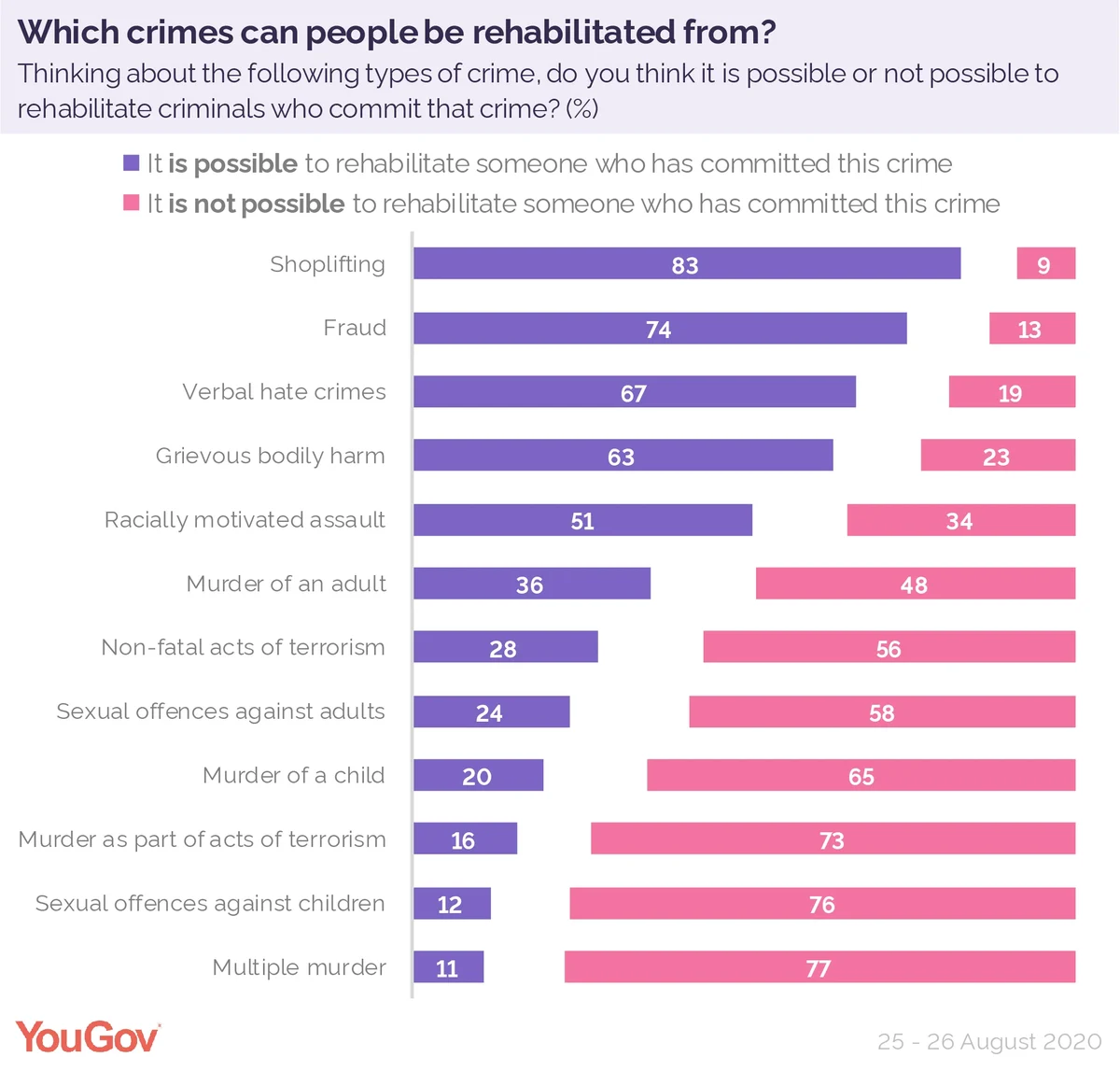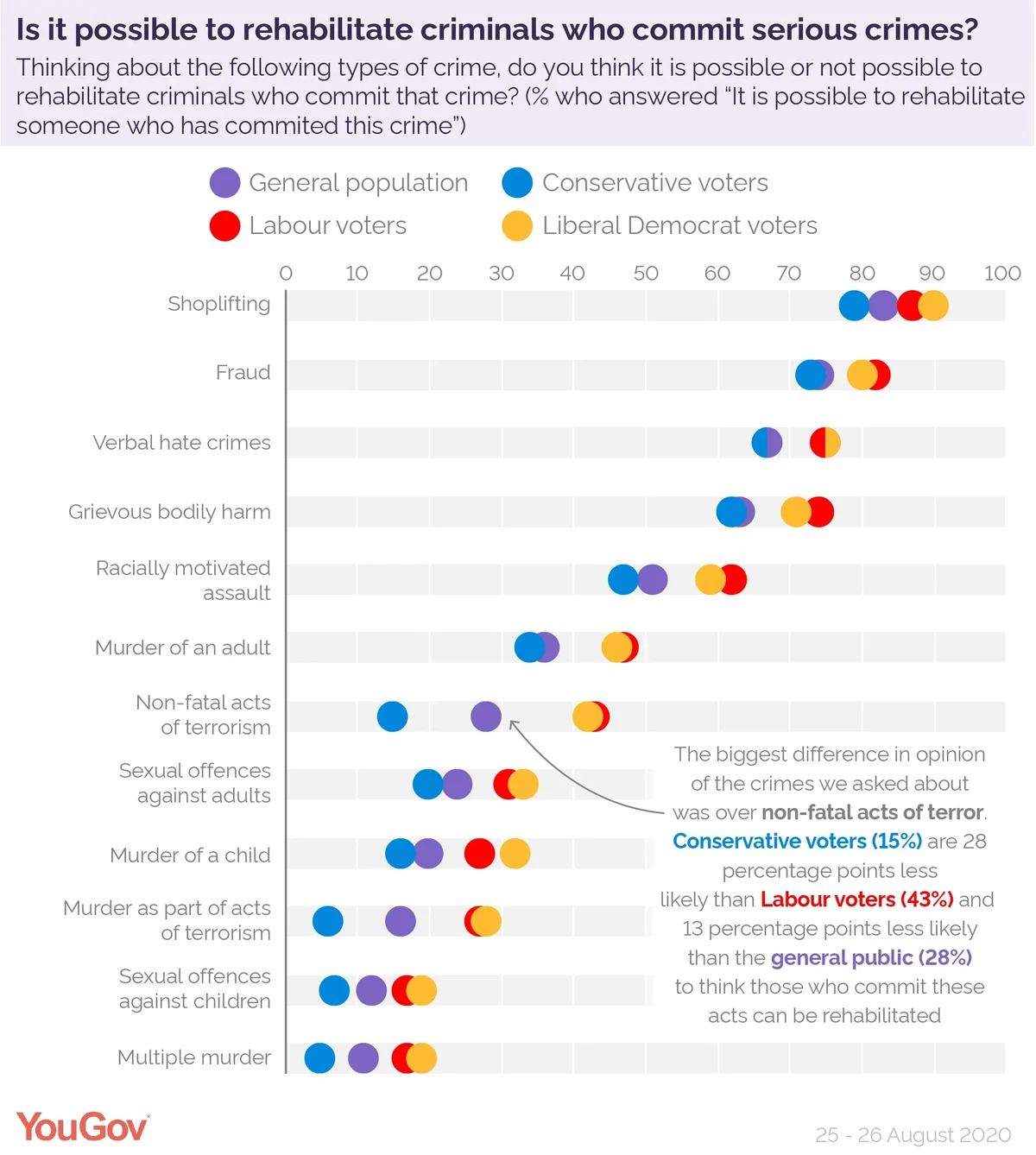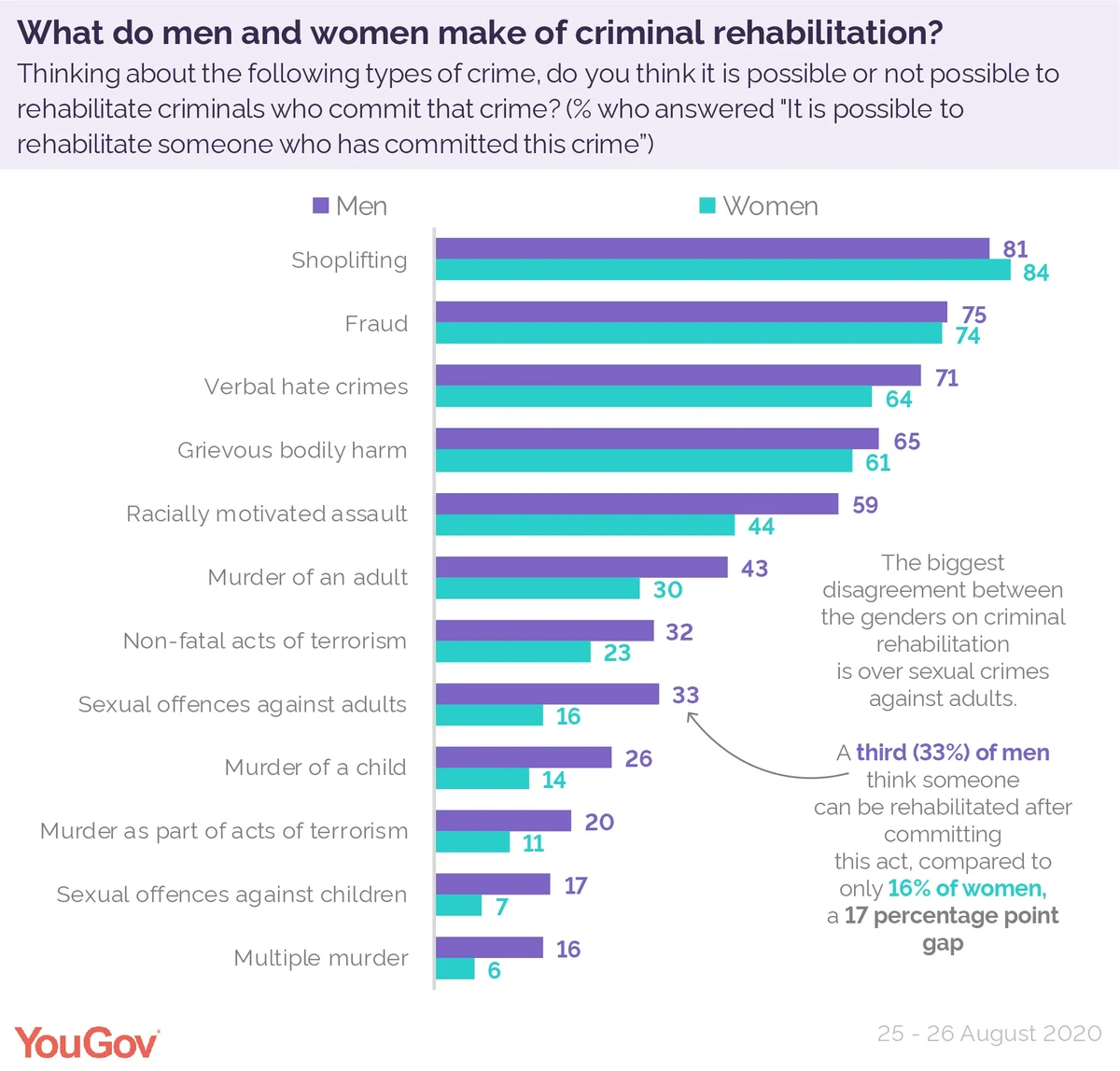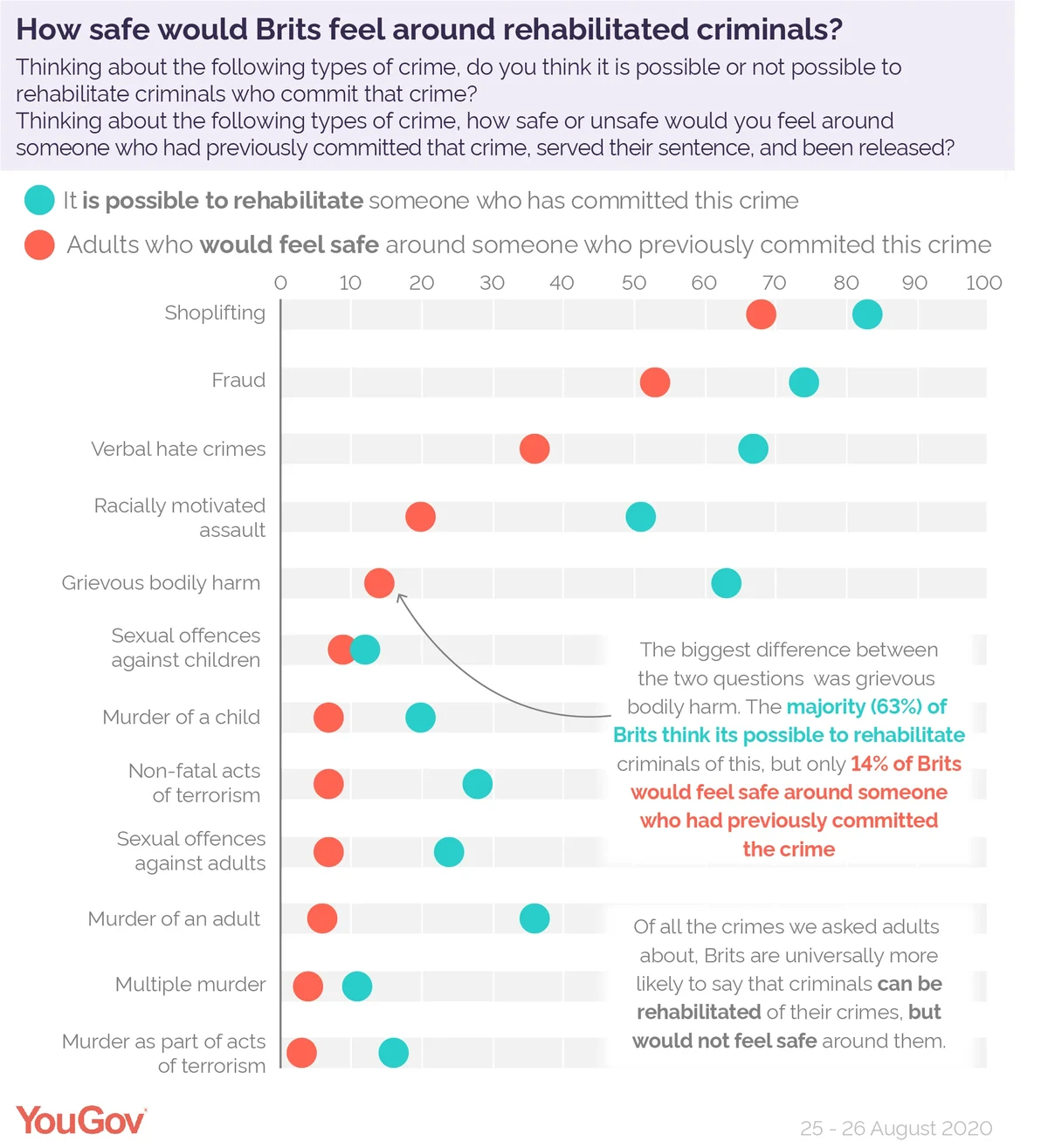
Can criminals change for the better?
A recent BBC documentary – Can Sex Offenders Change? – investigated whether those who have committed sexual crimes against children can ever be safely reintegrated into society.
While the programme didn’t reach a definitive conclusion, it raised a larger question: Which type of offenders can be effectively reformed – and which criminals shouldn’t get a second chance?
YouGov asked the public if it would be possible to rehabilitate criminals who have committed various types of crimes. Our data shows that just 12% of Brits think people who have been convicted of sexual offences against children can be rehabilitated – and three-quarters (76%) believe them to be beyond help.
Those who commit sexual offences against adults fare somewhat better with the public: a quarter (24%) think they can meaningfully change, versus three-fifths (58%) who think they cannot.

The public is more likely to believe that it’s possible to rehabilitate murderers than sexual offenders.
More than a third (36%) of Brits think it’s possible for someone who has taken the life of an adult to reform – though half (48%) take the opposite view – while a fifth (20%) believe that child killers can change their ways, versus two-thirds (65%) who think they cannot.
Nearly half of Labour and Lib Dem voters think murderers can be rehabilitated
Labour and Liberal Democrat voters are more optimistic about offenders than the general public.
Nearly half (46% Labour; 47% Lib Dem) think those who have murdered an adult can be reformed, versus 36% of Brits overall. A quarter of Labour voters (27%) and a third of Lib Dems (32%) also believe someone who has taken the life of a child can be rehabilitated, while almost a fifth of both groups (17% Labour; 19% Lib Dem) think the same of people who have committed sexual offences against a child.

“Once a shoplifter, always a shoplifter”, say 13% of Tory voters
Conservative voters are less likely to think genuine reform is possible in every category of crime we asked about. Two in five (41%) Tories agree that those who have committed racially motivated assault are beyond help - against a quarter (24%) of Labour voters, three in ten (30%) Lib Dems, and half (51%) of the general public.
Terrorism represents the most significant area of divergence between Conservative voters and the rest: just 6% think you can rehabilitate those who have killed someone as part of a terrorist act – compared to a quarter of Labour (27%) and Lib Dem voters (28%) and 17% of the public. Only 15% think it’s possible to reform someone who has committed a terrorist act without killing anybody, versus two-fifths of those who vote for the other two parties (43% Labour; 42% Lib Dem) and 28% of the public.
This pessimism extends to less serious offences: Tory voters are twice as likely to believe that shoplifters cannot change their ways – an opinion shared by just 6% of Labour voters, 5% of Lib Dems, and 9% of the general public.
Men are twice as likely to think sex offenders can be reformed
Shoplifting is also the only crime where women are more likely to believe that offenders can be rehabilitated than men. Overall, female Britons are significantly more cynical about the prospect of reform than males.

In particular, men are twice as likely as women to believe perpetrators of sexual violence can change their ways. A third of male respondents (33%) believe those who have offended against adults can be effectively reformed – compared to just 17% of women – while 17% take the same attitude to those who have offended against children (versus 7% of women).
Six in ten (63%) think you can rehabilitate someone who has committed GBH – but only 14% would feel safe around them
While many Brits believe in rehabilitation for certain criminals, they don’t necessarily want to socialise or work with them.
This is especially pronounced when it comes to grievous bodily harm (GBH): more than three in five (63%) think you can rehabilitate someone who has committed the severest form of assault, but just 14% would feel safe around someone previously convicted of this crime – and three-quarters (75%) would feel unsafe.

We can observe similar gaps across every other crime we asked about. There is a 30 percentage point gulf between people who think a murderer can be rehabilitated and people who would feel comfortable being in the vicinity of one: just 6% say they would feel safe around a convicted killer who had served their time.
Similarly, while two-thirds (67%) think people convicted of verbal hate crimes can be redeemed, only 36% would feel safe around someone who had been convicted of these offences – and while three-quarters of Brits (74%) believe that a convicted fraudster can be rehabilitated, just over half (53%) would feel safe around one.